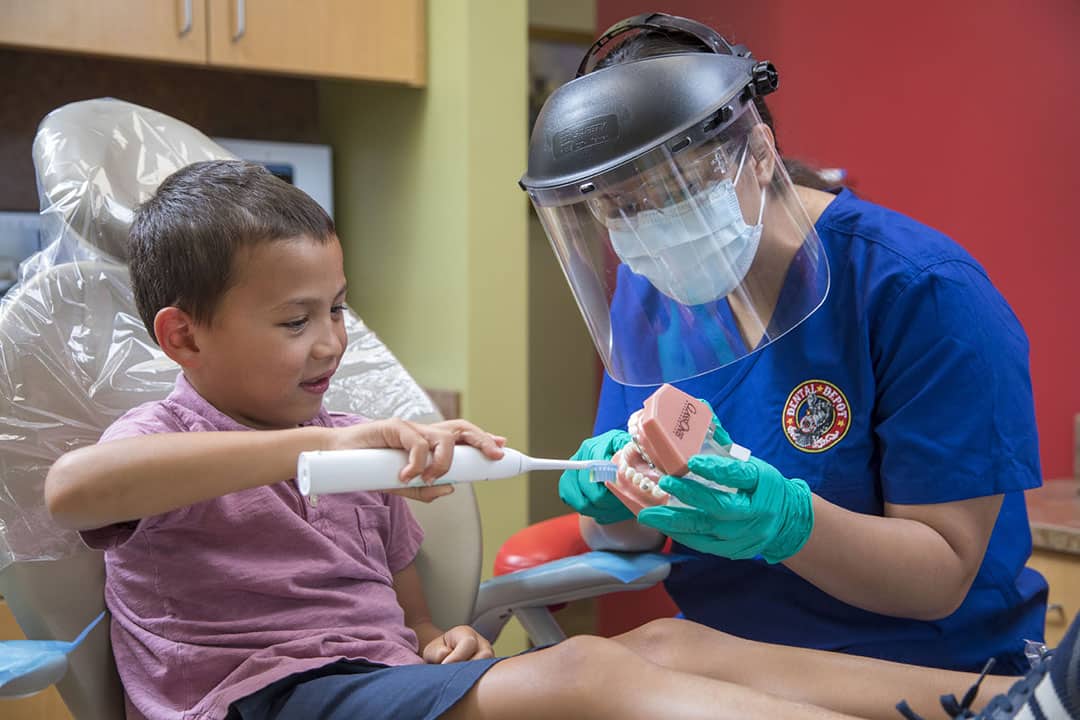Facial trauma, or maxillofacial trauma, is any serious physical injury that affects the facial bones, tissue, and skin. While facial trauma is rarely life-threatening—except in situations with symptoms like severe bleeding or impeded airways—it is often severe and requires immediate—if not emergency—treatment. Injuries to the face, teeth, jaws, and mouth can affect oral function, breathing, vision, facial movement, and physical appearance. If left untreated, certain injuries can lead to permanent disfigurement or serious facial impairments, like the inability to speak, eat, or breathe properly.
Facial injuries can occur as the result of sports injuries, work-related accidents, falls, acts of violence, or auto accidents, and they are often characterized by swelling, pain, numbness, or bruising in the surrounding tissue. A crooked nasal cavity, sunken cheekbone, or misaligned teeth can also be indications of facial fractures or injuries.

The injuries involve the teeth or the bone surrounding the teeth and can include dislodged or broken teeth or an avulsion, when one or more teeth have been knocked out of the jaw socket. Dentoalveolar injuries usually require immediate treatment to preserve, replace, or reposition teeth and/or the bones affected to prevent long-term damage. Treatment may consist of titanium plates and screws and wire arch bars to stabilize teeth and fractured segments. Depending on the severity, you may also require bone grafts and/or dental implants.
Inter-oral lacerations (within the mouth), as well as superficial lacerations (on the skin) and burns, are examples of soft tissue injuries. Immediate care is needed to determine the extent of the injury and repair it to prevent permanent cosmetic damage and restore function and sensation in the affected area. Soft tissue injuries can be treated with surgical sutures.
Maxillary fractures include all bones of the face, such as fractures in the upper or lower jaws, nasal cavity, and orbit of the eye, as well as cheekbone fractures, which are often referred to medically as zygomas. Facial fractures can cause swelling, threaten airways, and cause facial bones to separate from the cranial bones.
The treatment of facial fractures depends on the location, severity, and associated damage of the fracture, as well as the age and health of the patient. While the goals of treatment are similar to other broken bones—reestablish and maintain normal function and appearance, restore bone unity and alignment, and prevent infection—broken facial bones cannot be put in a cast to heal. Treatment methods may instead involve surgical procedures and stabilization that implement temporary jaw wiring or small plates and screws at the fracture site.
Treating and correcting facial trauma requires a high level of expertise to ensure a healthy recovery, restore proper function, and prevent permanent disfigurement. Maxillofacial and oral surgeons are highly trained specialists with extensive experience in both dental- and hospital-based medical conditions and injuries associated with the jaws, face, head, neck, and hard and soft tissues of the face and mouth, such as:
Maxillofacial surgeons are oral surgeons with additional training in more complex dental and medical issues, but both have the requisite education and expertise to treat nearly all of the same conditions.
Prevention is crucial to avoiding facial trauma. You can protect yourself from serious injuries by wearing:
Dental Depot DFW’s complete team of dental professionals includes prosthodontists, orthodontists, and oral and maxillofacial surgeons, allowing us to provide exceptional, comprehensive care beyond simple cleanings and checkups. Our specialists have years of advanced training in dentoalveolar, reconstructive, and orthognathic surgery; bone grafting; dental implants and restoration; craniofacial deformities; and complex full mouth rehabilitation. From facial injuries and emergencies to routine wisdom teeth extraction, Dental Depot DFW is committed to delivering the attentive, experienced, and consistent care you and your family deserve.
When you choose Dental Depot DFW for your dental and orthodontic needs, our resources become yours—dental hygienists to orthodontists, dentists to oral surgeons—all at one convenient location. With locations in Dallas, Lewisville, Aubrey, The Colony, McKinney, Arlington, and Highland Village, you can choose the office closest to home. This means faster, better, and more continuous care, even in an emergency.
Dr. Kana is dedicated in providing the highest level of care. He and the staff are committed to education and expanding knowledge. He has completed over 1,000 hours of continuing education. Dr. Kana hopes that being accessible to all of his patients, strong community feel and values, and strong patient/customer service is what will help our practice and community grow.
